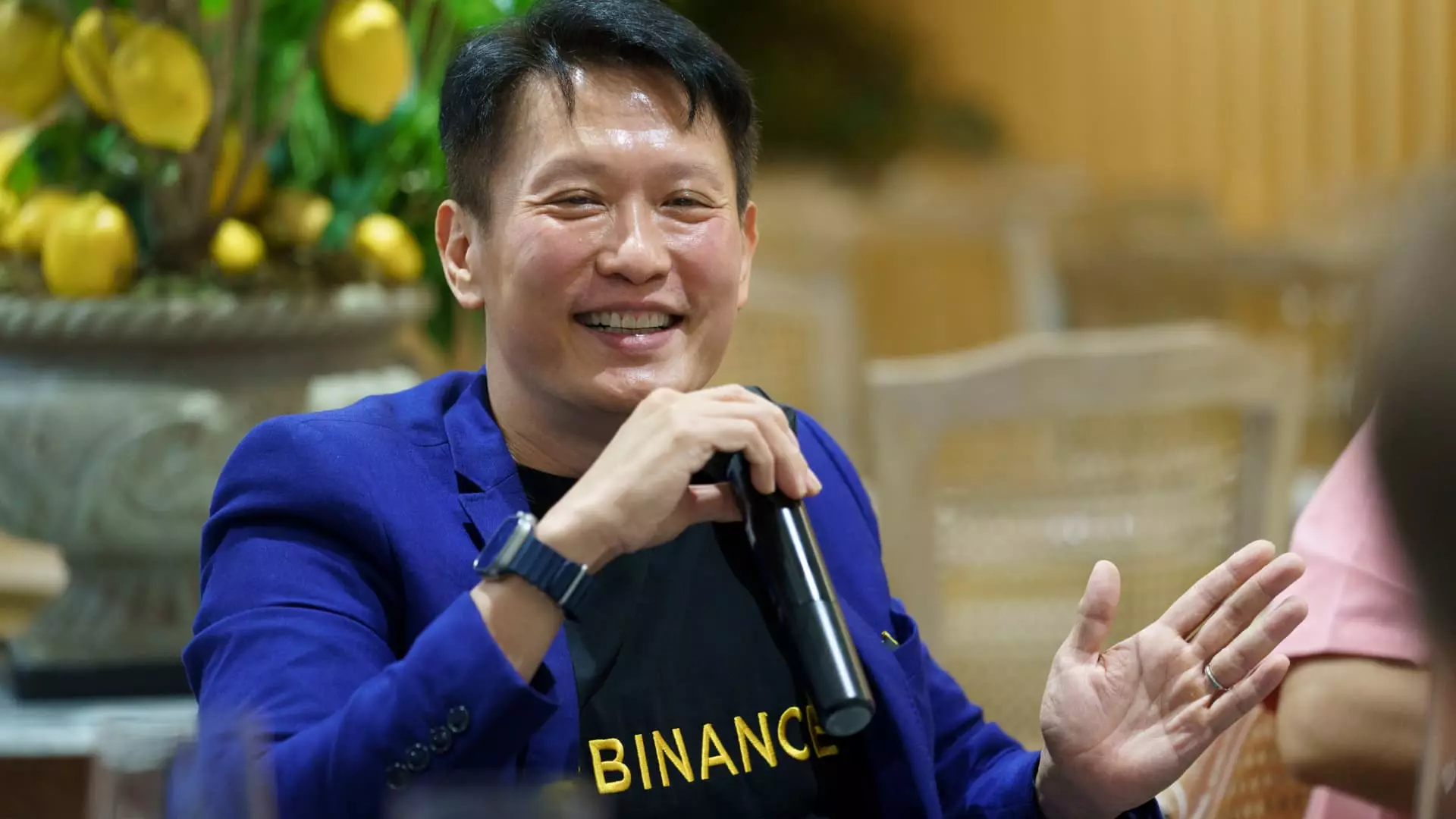Richard Teng, the newly appointed CEO of Binance, recently reflected on the dramatic shift in the cryptocurrency landscape, highlighting the Trump administration’s role in this transformation. In an age where regulations often stifled innovation, Teng believes that under Donald Trump’s governance, the environment for cryptocurrency firms, especially Binance, has taken a turn for the better. Once treated as a political outcast, Binance now appears poised for influence in Washington, marking a notable trajectory shift from its past tumultuous engagements with regulators.
For a company that faced significant repercussions, such as a $4.3 billion settlement with U.S. authorities and the removal of its founder, Changpeng “CZ” Zhao, Teng’s take on the current political climate exudes a sense of optimism. Assessing the drastic changes over the last 16 months, Teng emphasized that Binance has effectively adapted its operations to not only survive but thrive in an environment that is suddenly more conducive to cryptocurrency ventures.
Rebuilding Bridges: The Road to Acceptance
During a period characterized by political indifference or hostility towards cryptocurrencies, Binance’s rebound is particularly remarkable. The company’s aspirations may not stop at mere compliance; talks of potential financial partnerships with the Trump family and World Liberty Financial represent a pivot from adversary to ally in political circles. The association with high-profile entities like the Trumps implies a potential endorsement from a sector that has historically been wary of cryptocurrency.
Despite the incipient nature of these conversations, it signals a noteworthy potential for Binance’s legitimacy, as Teng navigates a delicate path while maintaining transparency. By addressing speculation regarding these negotiations candidly, he underscores a commitment to direct dialogue rather than the evasive behavior that typified many corporate executives in the past.
Compliance as a Cornerstone
Teng is evidently invested in compliance, a strategy he views as crucial for rejuvenating Binance’s image and trustworthiness in a sector riddled with skepticism. Once criticized for underinvestment in compliance, the company now boasts a workforce with significant expertise in regulatory affairs. With a fourth of its employees dedicated to compliance, it marks a significant shift from their previous disposition of regulatory indifference.
His acknowledgment of earlier missteps in compliance and proactive measures taken since his leadership have drawn commendations from industry watchers. By transforming Binance from a rogue entity into a compliant player, the stage is being set for a renewed acceptance from regulators—not just in the U.S., but globally, with operations expanding through strategic moves in Japan, Australia, and beyond.
Emerging Challenges from the Shadows
Nevertheless, the optimism surrounding Binance’s resurgence must contend with the reality of its checkered past. The company is still grappling with several regulatory challenges, particularly from the SEC, which continues to loom as a significant obstacle. A civil case against Binance and Zhao, while currently paused, represents the ghost of its previously notorious dealings that might resurface and threaten the newfound stability.
The story of Binance’s star compliance officer, Tigran Gambaryan, illustrates the complexities of navigating international legal terrains. His detention in Nigeria highlights the multitude of challenges Binace faces, as well as the sometimes-discrepant perceptions of crypto companies in their efforts to operate within legal confines. It remains to be seen how Binance will reconcile its global ambitions with local regulations that can fluctuate dramatically.
Expanding Horizons: Merging Crypto with AI
One of the most significant milestones under Teng’s leadership was the landmark $2 billion investment from Emirati investment firm MGX, marking the largest investment into a crypto company to date, particularly in stablecoins. Such partnerships reflect a broader recognition of the bond between cryptocurrency and emerging technologies like artificial intelligence, which Teng believes are crucial for future advancements.
As he elaborated on how Binance is leveraging technology for customer service and compliance, it became apparent that Binance isn’t just adhering to the current landscape but reshaping it through innovation. This forward-looking perspective places Binance at the forefront of what Teng describes as a new digital revolution—where blending crypto and AI isn’t merely an industry trend but rather an essential evolution.
Navigating Uncertain Waters
Despite the promising developments, Teng remains candid about the frequent concerns that arise in managing such a tumultuous sector. His reflections on security, compliance, and innovation elucidate the looming anxieties that accompany rapid growth. These are not just operational burdens; they are vital areas demanding acute attention to solidify Binance’s standing as a leading digital platform.
The undeniable volatility of the crypto landscape, compounded by the continuous evolution of regulatory frameworks, means that vigilance in these areas is more critical than ever. In navigating this space, Teng’s dedication to establishing Binance as not simply a dominant market share player but as an institution committed to safety, compliance, and technological advancement reinforces the importance of responsible leadership in an era ripe with opportunity.


Leave a Reply